 |
What we often do not understand about rejection is that it is often simply temporary, sooner or later somehow helpful, or a simple course correction.
|
112 |
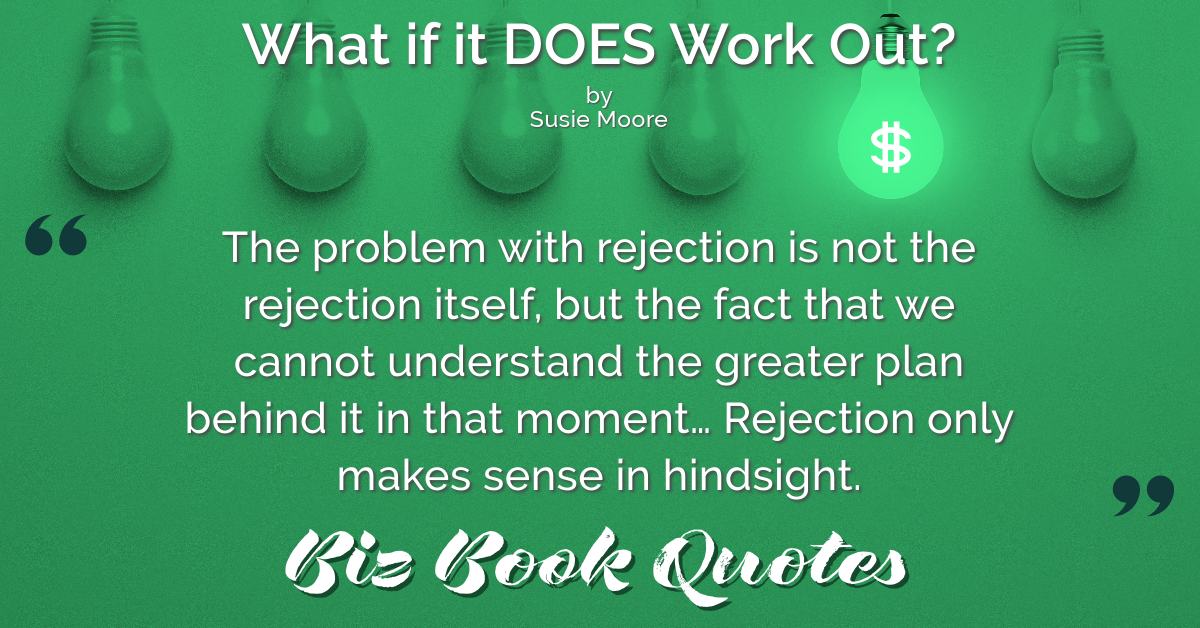 |
The problem with rejection is not the rejection itself, but the fact that we cannot understand the greater plan behind it in that moment… Rejection only makes sense in hindsight.
|
112 |
 |
There is always a greater power at work than we can see or understand.
|
155 |
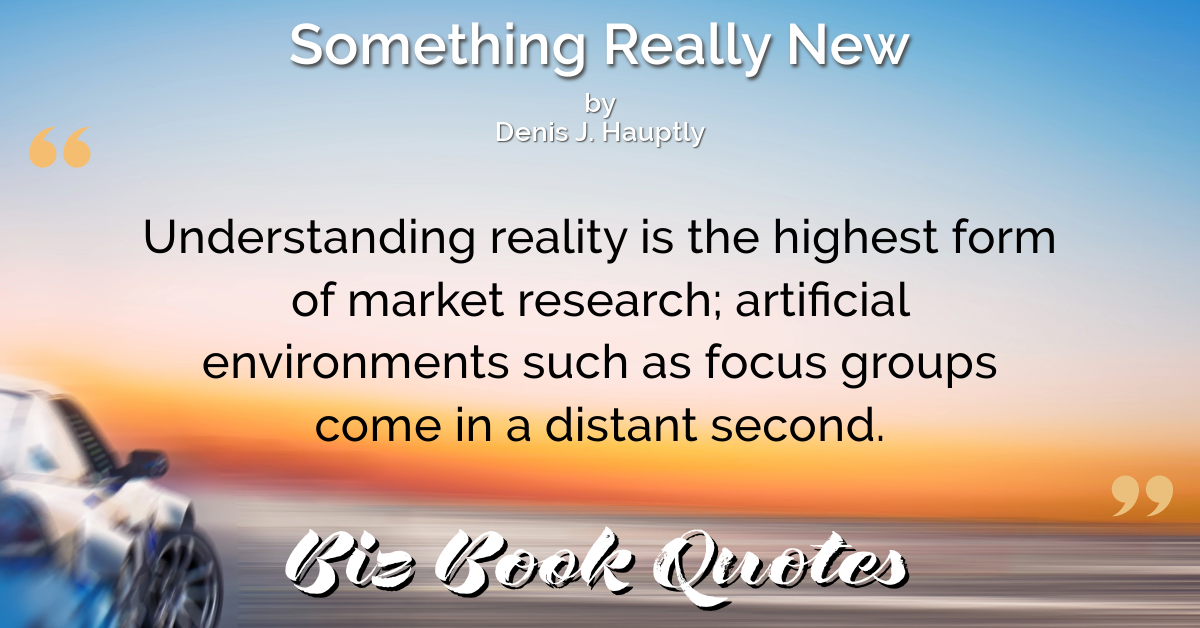 |
Understanding reality is the highest form of market research; artificial environments such as focus groups come in a distant second.
|
114 |
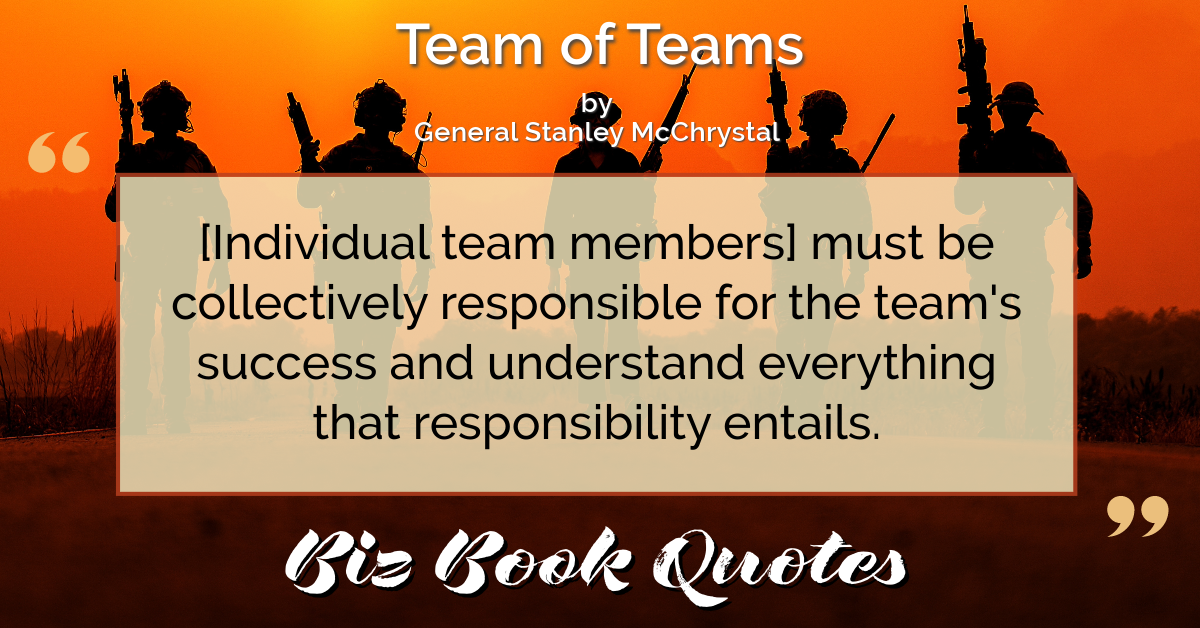 |
[Individual team members] must be collectively responsible for the team’s success and understand everything that responsibility entails.
|
099 |
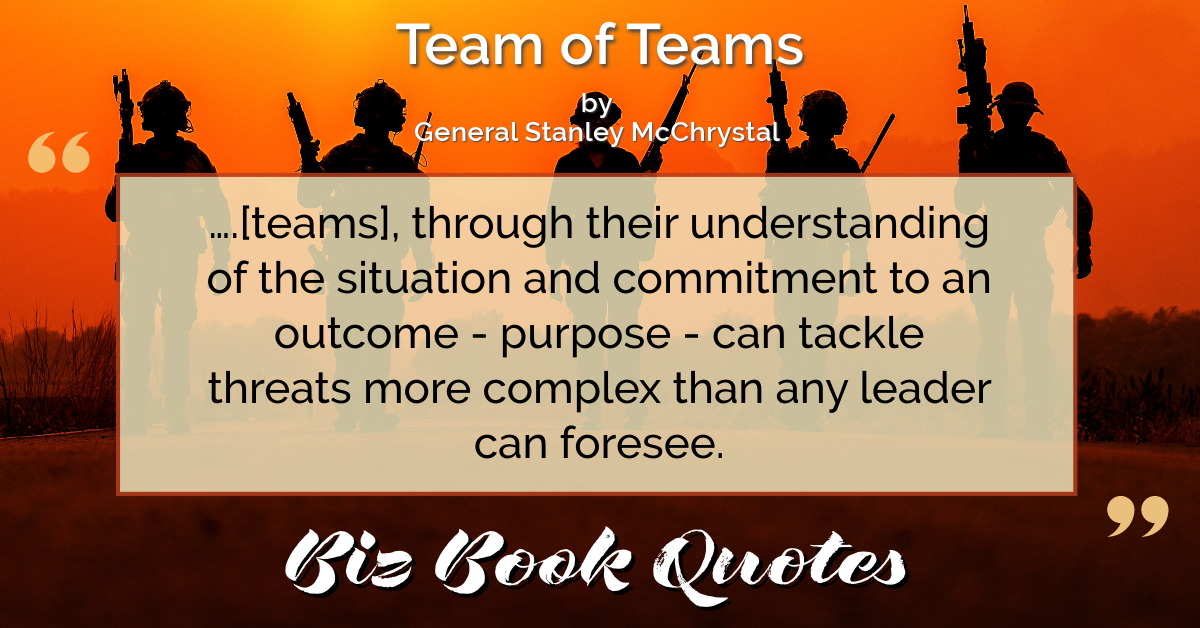 |
….[teams], through their understanding of the situation and commitment to an outcome – purpose – can tackle threats more complex than any leader can foresee.
|
100 |
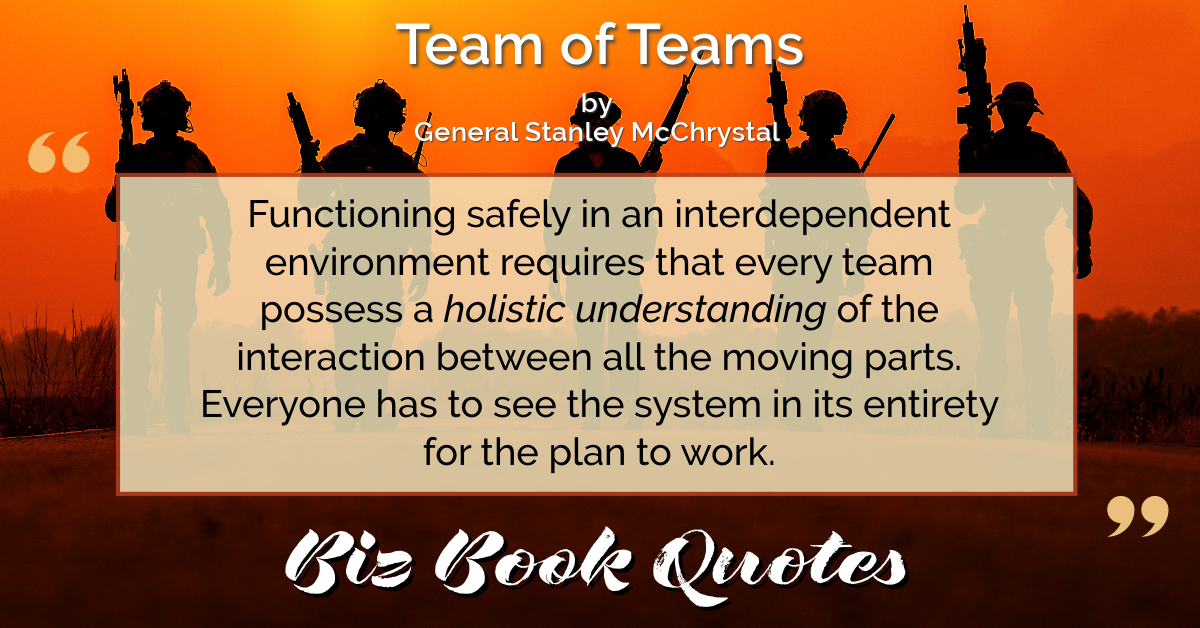 |
Functioning safely in an interdependent environment requires that every team possess a holistic understanding of the interaction between all the moving parts. Everyone has to see the system in its entirety for the plan to work.
|
141 |
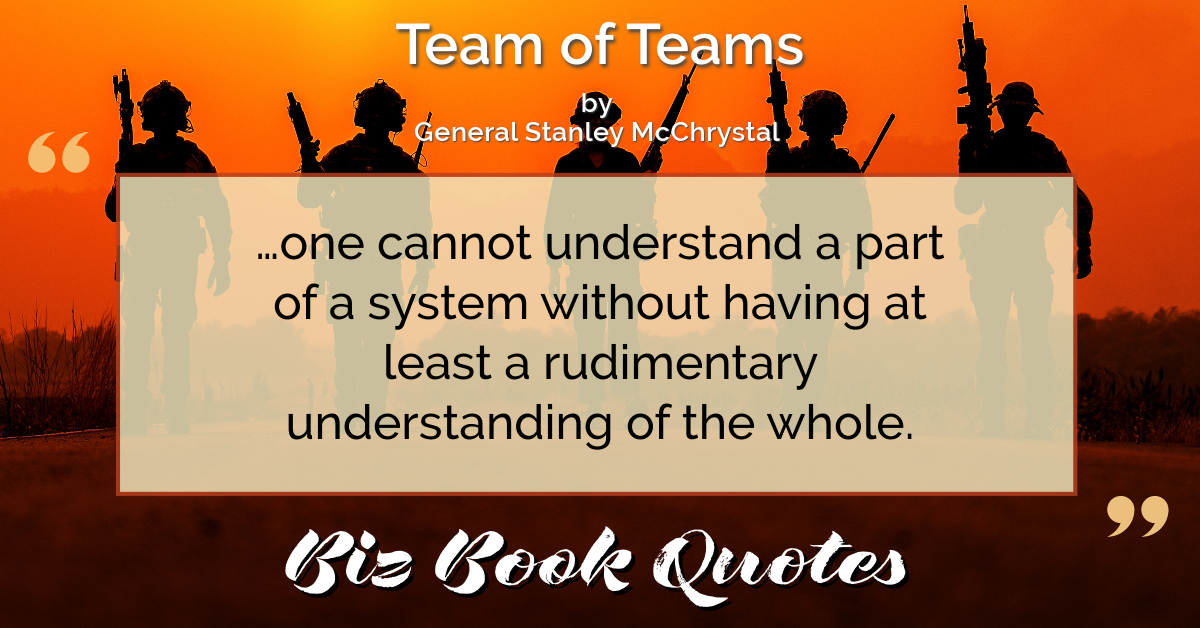 |
…one cannot understand a part of a system without having at least a rudimentary understanding of the whole.
|
149 |
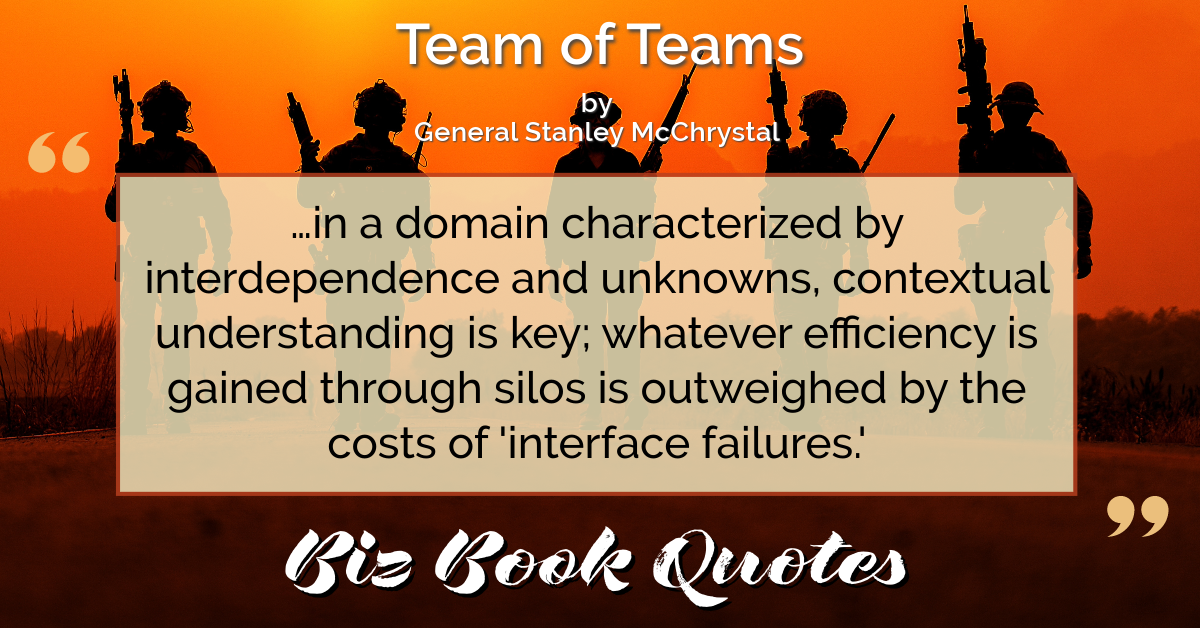 |
…in a domain characterized by interdependence and unknowns, contextual understanding is key; whatever efficiency is gained through silos is outweighed by the costs of ‘interface failures.’
|
151 |
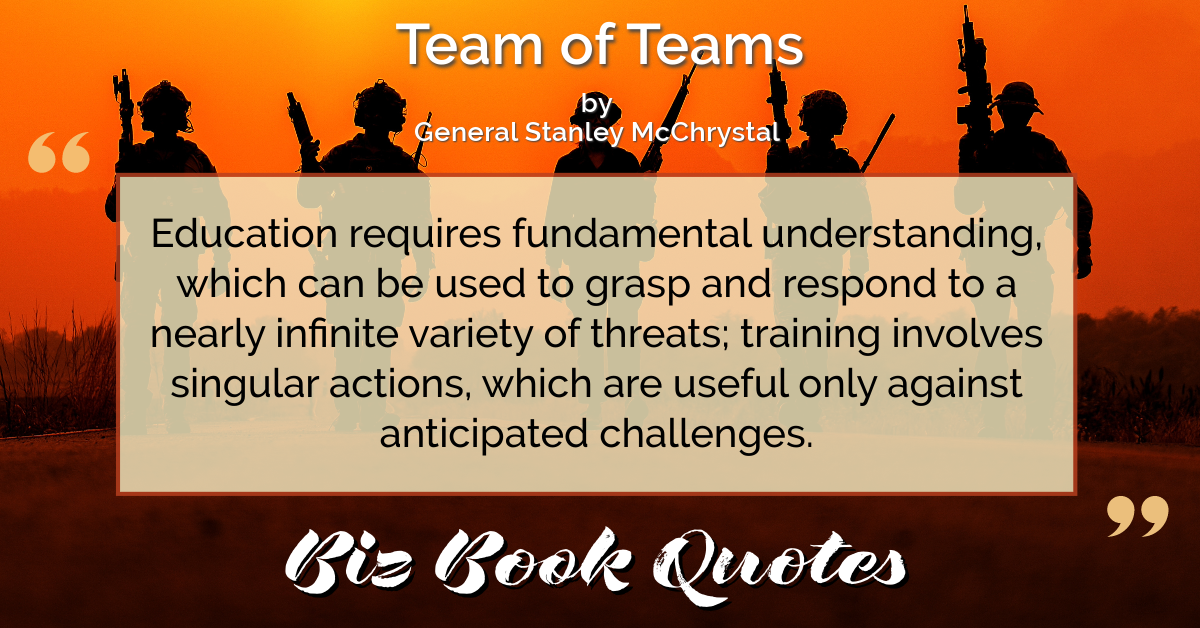 |
Education requires fundamental understanding, which can be used to grasp and respond to a nearly infinite variety of threats; training involves singular actions, which are useful only against anticipated challenges.
|
153 |